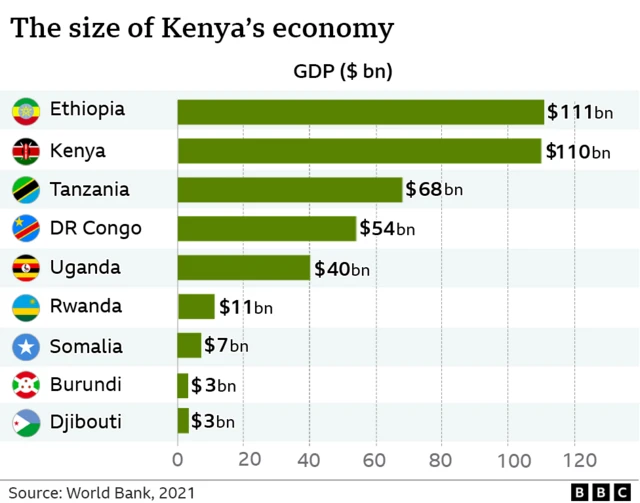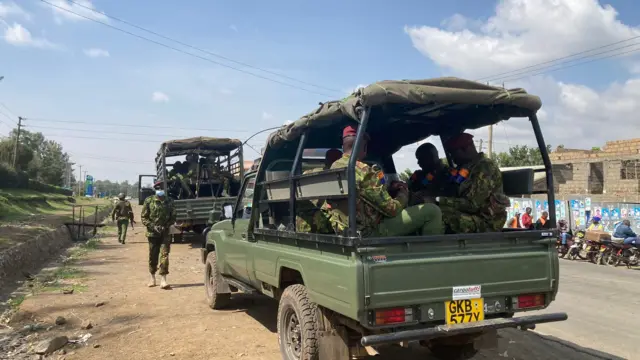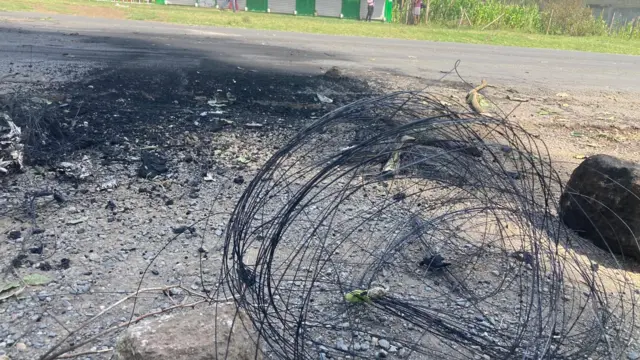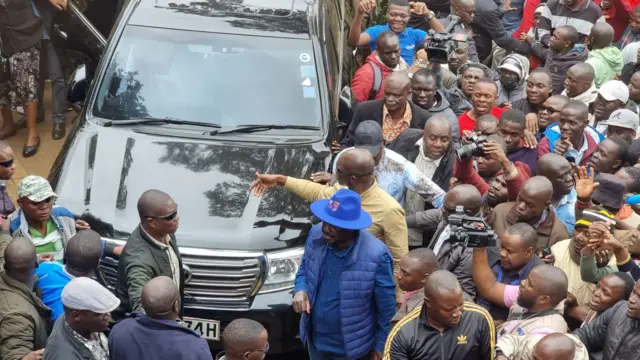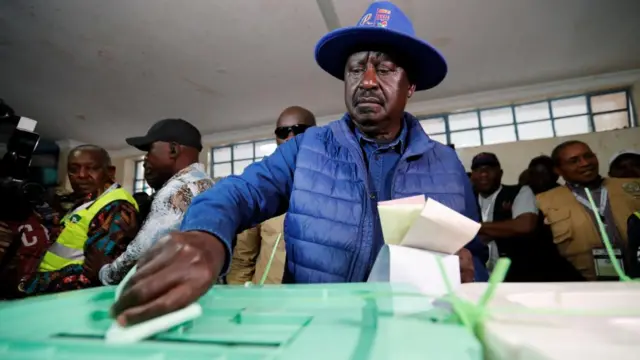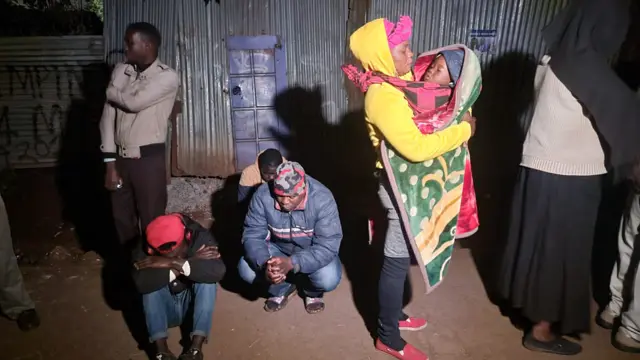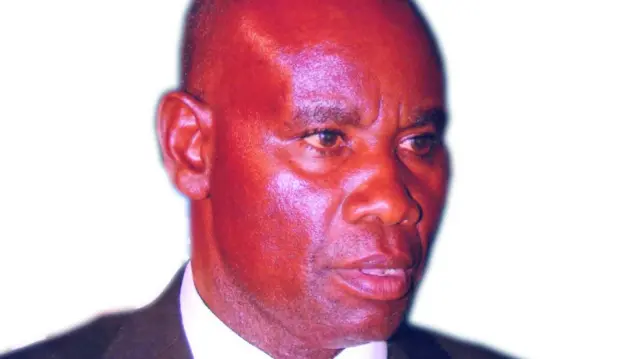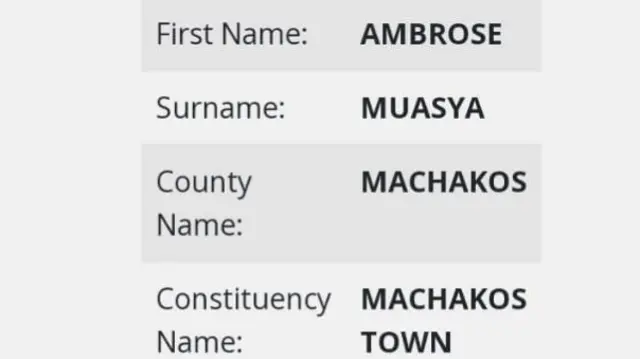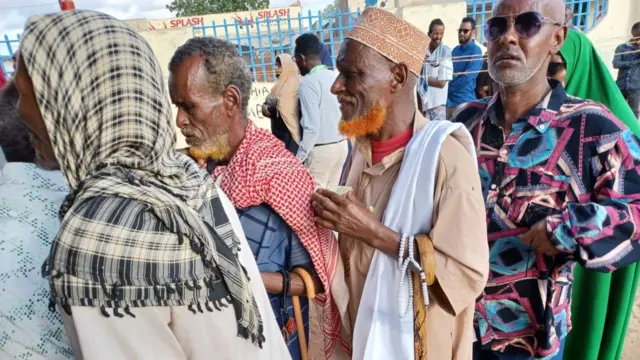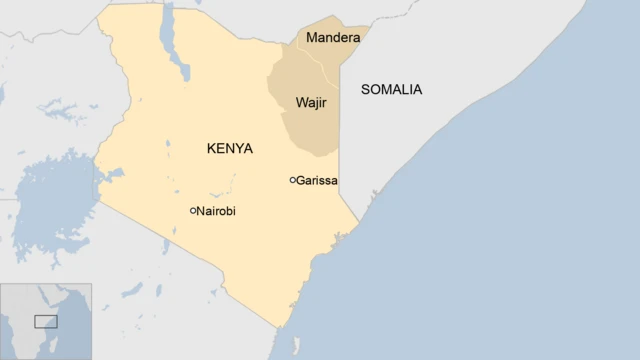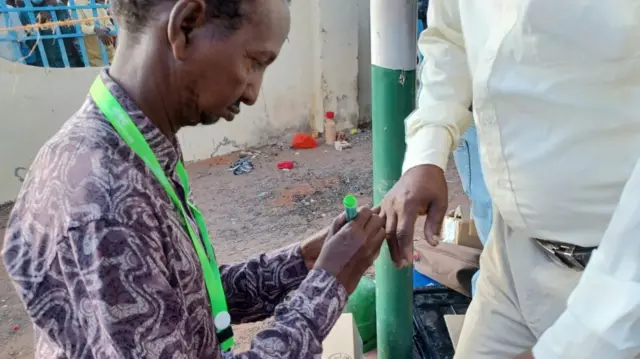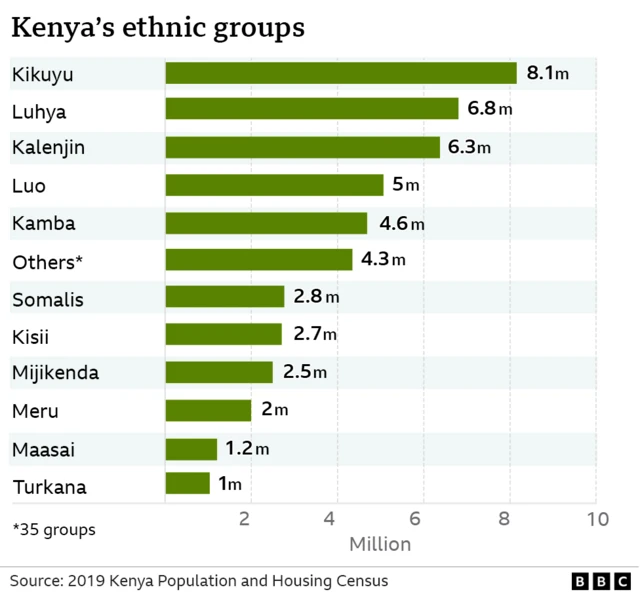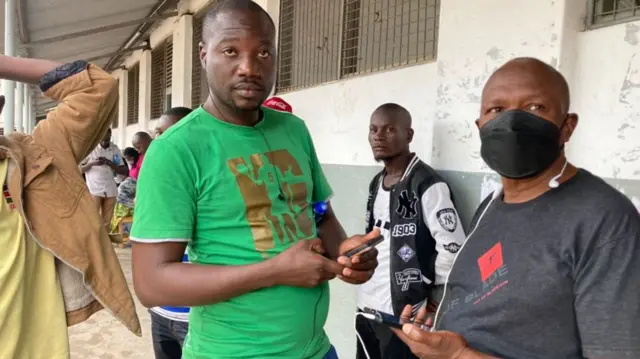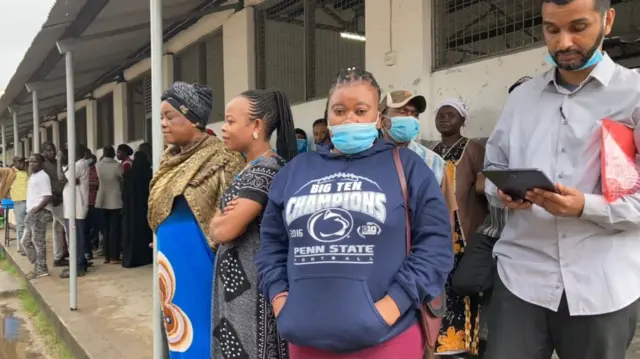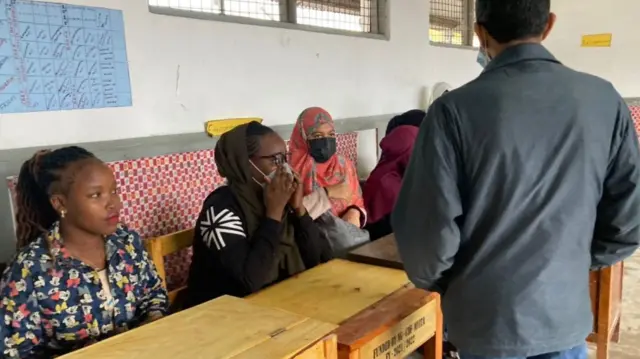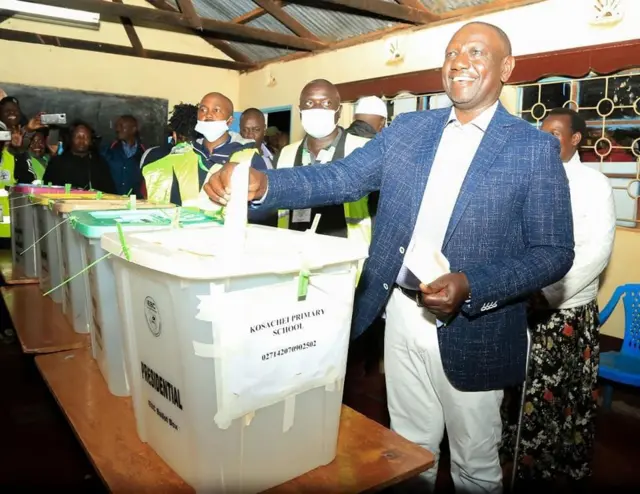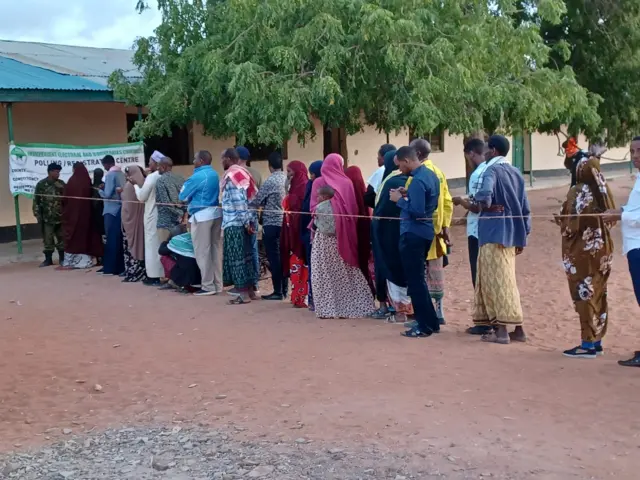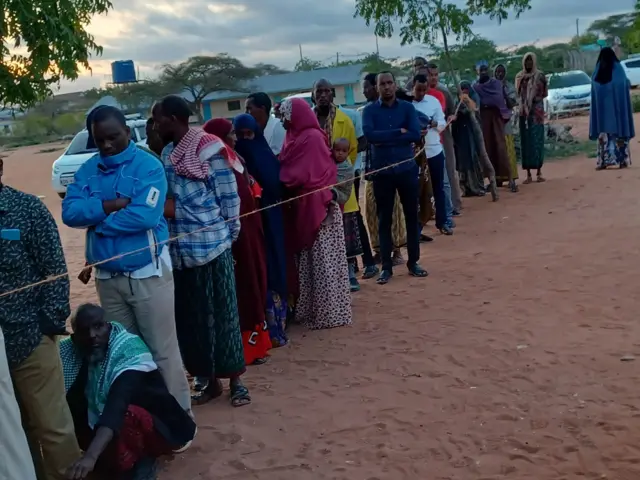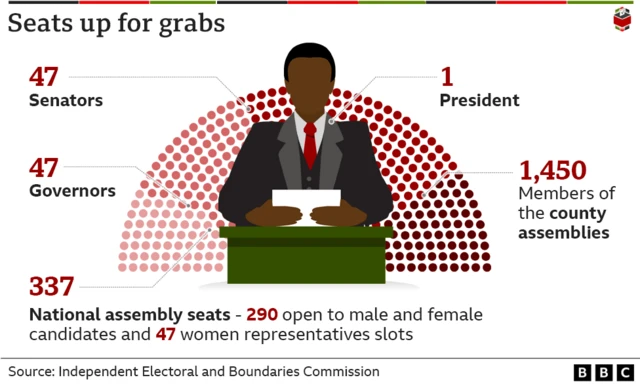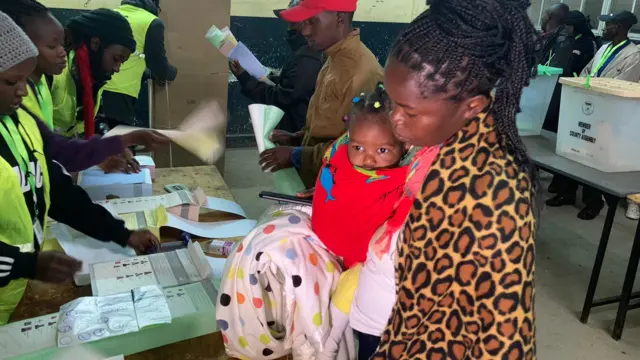Motorbike riders offer free lifts in Ruto's heartlandpublished at 10:51 BST 9 August 2022
 Emmanuel Igunza
Emmanuel Igunza
BBC News, Eldoret
Eldoret town, in Kenya’s Rift Valley, is deserted with early indications from electoral commission showing a large voter turnout in Uasin Gishu county.
Many shops remain closed with business owners saying they allowed their workers time off to cast their votes. Only a few premises remain open.
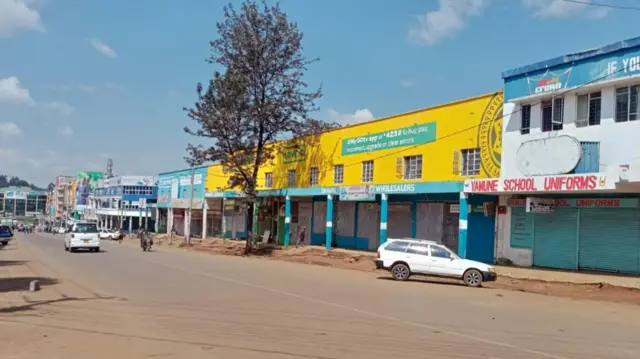 Image source, BBC's Robert Kiptoo
Image source, BBC's Robert KiptooAt polling stations, voters have been urging electoral officials to work faster to accommodate the large number of people who have been queuing up from as early as 04:00 local time.
William Ruto, one of the presidential frontrunners, hails from Uasin Gishu county.
In his hometown of Sugoi, motorcycle riders have abandoned their day jobs and have instead volunteered to take the sick and elderly to polling stations for free:
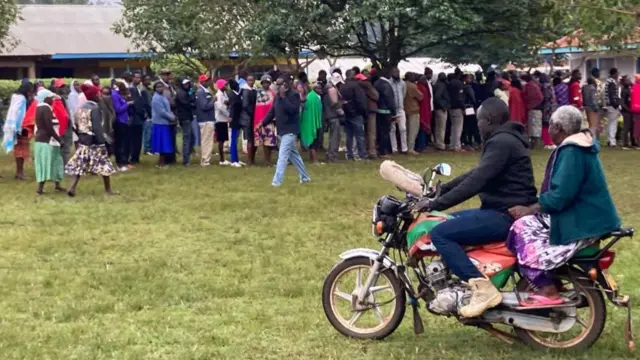 Image source, BBC's Robert Kiptoo
Image source, BBC's Robert Kiptoo